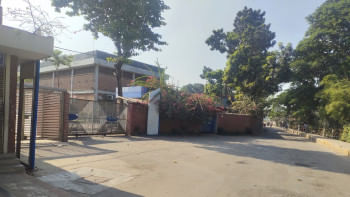An Academic Pilgrimage to Bhutan

A few weeks back, I had the tremendous good fortune to participate in an international academic conference. Wikipedia defines an academic conference to be "a conference for researchers (not necessarily academics) to present and discuss their work". I did just that, and much more.
The 2nd International Conference on Sustainable and Renewable Energy Design and Development (SREDD2017) was organised by the College of Science and Technology of the Royal University of Bhutan. The three-day event took place on April 3-5, 2017 in Thimphu, the capital of Bhutan.
Looking back at the experience, I've decided to compile a set of anecdotes so that you, the reader [who is hopefully a student], may realise the worth of attending such conferences at home and abroad.

RESEARCH
The core concept of an academic conference states that students, teachers and researchers from around the world convene at a location to present their research work, on a range of topics. Often times we shy away from discussing what we're working on, perhaps due to insecurities. At a conference, however, it is imperative that one break free and embrace what comes their way. For me, it was critical observation and feedback.
Being in the audience, I learned a lot about my own research from the presentations of my peers. My presentation was scheduled for the second day and I spent the entire night before fine-tuning an MS PowerPoint file. The process had me correct a lot of errors and detect loopholes in my work. Accio critical observation. Later that day, I had delivered a wonderful performance on solid waste management with kudos pouring in from everywhere. Accio feedback. There were many who mistook me for a faculty member or a PhD student. Needless to say, that kind of recognition is a huge confidence booster for any student.
NETWORK
The most important aspect of a conference is "networking". There, I said it.
Participation in conferences guarantees that a researcher meets like-minded enthusiasts from different parts of the world. And it is of much significance that the person makes the best use of it. How? Talk. It starts with a simple "Hi" or "Hello" at the food counter and before you know it, the conversation flows to how the intricate architecture of Bhutanese buildings is actually a method to keep the rooftops cool during warm summers and warm during cool winters. Before long, I connected with students, professors and professionals in my field of research. If nothing, I've collected a lot of business cards over the course of the conference.
Even now, I stay in touch with participants who hail from Bhutan, Nepal, Japan, Colombia, the Netherlands, and so on. Networking not only helps in making intellectual acquaintances but opens doors to opportunities worldwide.

EXPLORE
The heading itself is self-explanatory. Like the one I went to, international conferences roughly translate in my mind to "a chance to travel". Bhutan is a country with a favourable climate most of the year; the population of its capital, Thimphu, is only 70,000.
I was able to take a few long walks in the city, happily losing my way a couple of times. The monasteries and temples were at a walking distance. The highlight of my trip, however, was the trek to Tiger's Nest in Paro – Taktsang as it is locally known – with my research supervisor. A 5 kilometre up-and-down hike took me 10,232 feet above sea level, and my lungs and muscles to a whole new level. In accordance to many quotes on top of blurred out photos on the internet, travelling does bring out the best in people. It was a check off the bucket list.
If you do get the chance to present your work at a conference, do some extra research on the venue and its attractions – it pays off.
In my opinion, conferences are academic pilgrimages. They're the best mix of field trips and study tours. Nothing beats meeting academic peers from around the world, getting your work discussed and a bit of sight-seeing – all in one itinerary.
Kazi Akib Bin Asad is a Sub-editor at Shout who likes to travel and collect puns from all over the world. Follow him and his adventures on instagram.com/akibasad


 For all latest news, follow The Daily Star's Google News channel.
For all latest news, follow The Daily Star's Google News channel. 



Comments